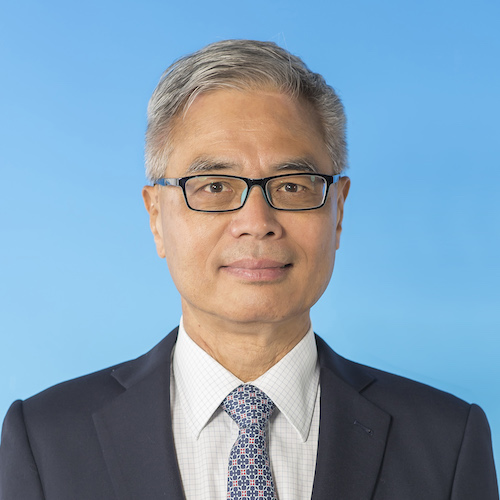Wei Shyy is a chair professor at the Hong Kong University of Science and Technology (Guangzhou). He was president of the Hong Kong University of Science and Technology and chair professor of Mechanical and Aerospace Engineering. Prior to joining HKUST in 2010, he was Clarence L. “Kelly” Johnson Collegiate Professor and Chairman of the Department of Aerospace Engineering of the University of Michigan. He was the principal investigator of several multi-institutional research projects, funded by the US government and industries, on future space transport, bio-inspired flight, and computational aeroscience. He is a general editor of the Cambridge Aerospace Series published by the Cambridge University Press and a co-editor-in-chief of Encyclopedia of Aerospace Engineering, a major reference work published by Wiley-Blackwell. Prof. Shyy is an elected member of Academia Sinica (Taipei), an agenda contributor of the World Economic Forum, and a fellow of the American Institute of Aeronautics and Astronautics (AIAA). He has received awards for his research and professional contributions, including the AIAA 2003 Pendray Aerospace Literature Award, the ASME 2005 Heat Transfer Memorial Award, and The Engineers’ Council (Sherman Oaks, CA) 2009 Distinguished Educator Award. In 2021, the French Government made him an Officer of the Legion of Honor. In 2023, the International Conference on Computational & Experimental Engineering and Sciences (ICCES) honored him with the Satya N. Atluri Award. He has also been awarded the 2024 Meir Hanin International Aerospace Prize.
Since joining HKUST, Prof. Shyy has led and promoted numerous initiatives, including a long-term strategic plan with dual emphasis on curiosity-driven and mission-encouraged pursuit to fuse disciplinary as well as cross-disciplinary programs to comprehensively address issues challenging society and humanity. Built on these conceptual foundations, HKUST, in partnership with Guangzhou City and the Guangzhou University, has established HKUST(GZ) under a “Unified HKUST, Complementary Campuses” framework.

